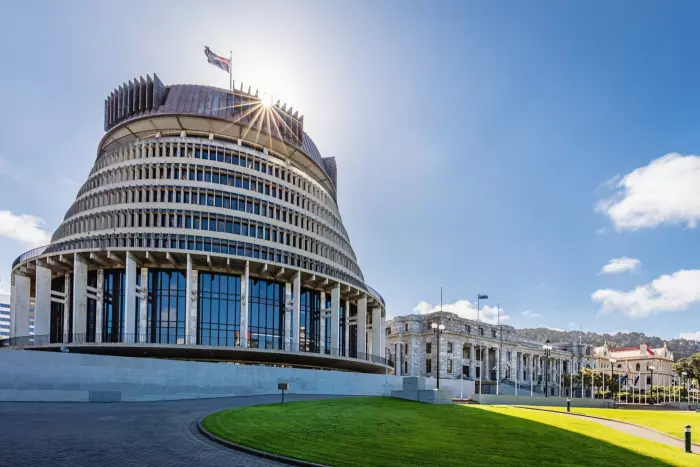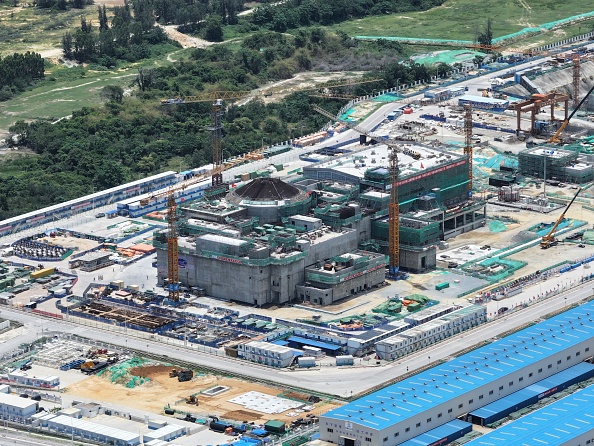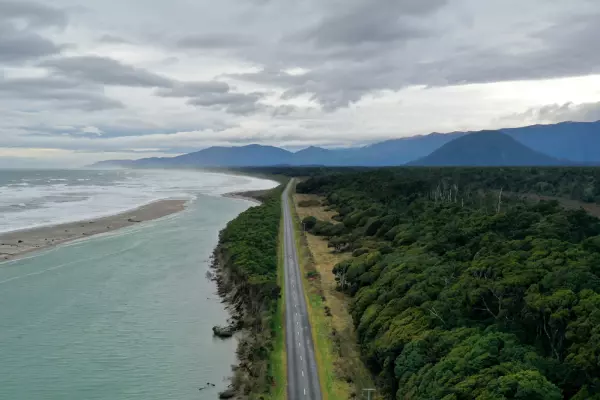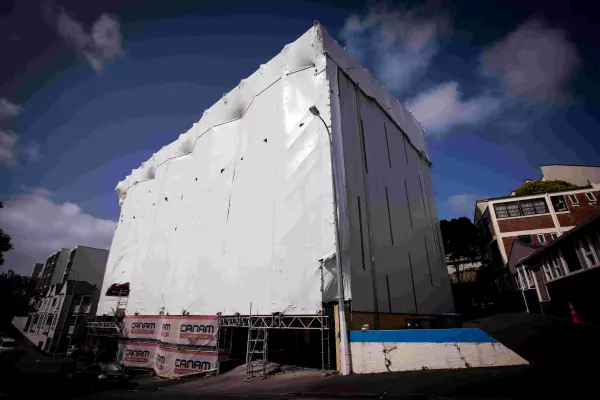The term ‘balance sheet separation’ is being thrown around as local councils and the new coalition government debate the regulatory, financing and governance structure for New Zealand’s water sector.
However, the debate is not really about balance sheet separation – at least not as the term is generally understood.
Rather, it’s about whether the national government will underwrite local utilities’ debts.
Normal meaning of balance sheet separation
Let’s start with the normal meaning of ‘balance sheet separation’.
In essence, the term means that the utility and its owners are separate legal entities, each with its own balance sheet.
All the water utility's assets are recorded on its balance sheet. The water assets are not recorded on the local council's balance sheet. [1]
Balance sheet separation, in this literal sense, is easy to achieve. The government of NZ owns Transpower, but its balance sheet is separate from the government’s balance sheet.
Dunedin International Airport is 100% owned by the Dunedin city council – the balance sheets are separate.
Why, then, all the fuss in the water sector?
The real issue: will the national government underwrite local water utility debts?
It turns out ‘balance sheet separation’ is a code for a more difficult question: “What kind of credit support should local councils or the national government offer to local-government-owned water utilities?”
When WaterCare’s chief executive says, ‘We need balance sheet separation’ [2], he doesn’t mean that literally: WaterCare’s balance sheet is already separate from the Auckland council’s. Hawke's Bay leaders also want a model with a separate balance sheet [3]; New Plymouth’s mayor would like the crown to guarantee water-sector borrowings, and the mayor of Hutt City says keeping water assets on the council’s balance sheet will increase financing costs. [4]
If that was all they wanted, they could achieve it by putting all the water assets and operations into a separate company owned by the councils.
However, what WaterCare and some mayors are, in effect, saying is, ‘We want the national government to underwrite the liabilities of council-owned water utilities’.
How did the conflation of ‘balance sheet separation’ with ‘national government guarantee of local utilities’ debts’ come about? It’s largely because of the less-than-straightforward way the previous administration's policies were communicated.
Its plans to create four (later 10) regional utilities with no identifiable owner appeared to relieve local councils of financing responsibilities while allowing the planned regional water utilities to access tens of billions of dollars of finance at low interest rates.
Does that sound too good to be true? Sadly, it was.
The claimed benefits only worked on the assumption that the national government would bail out any utility that ran into trouble. [5]
This underpinning was something the previous government never publicly emphasised.
Auckland’s situation
What’s really at stake? Let’s tackle the Auckland situation first, since Auckland has the biggest problem to solve.
The Auckland council has a debt ceiling of 280% of its revenues, and the mayor intends to let Watercare borrow up to 340% of its revenues.
Watercare, which is wholly owned by the Auckland council, plans to spend around $18.6 billion over 20 years (Watercare’s 2021 estimates) to meet growing water service demands. The rating agencies, such as S&P, believe that if Watercare gets into trouble, the Auckland council will service its debts.
Because of this, the rating agencies count Watercare debt as Auckland council debt.
Suppose Watercare borrows what it says it needs to borrow. In that case, it will push the Auckland council’s debt above the debt ceiling, likely resulting in a credit downgrade and higher borrowing costs for both the Auckland council and Watercare.
Auckland would avoid this problem if it could decouple Watercare’s liabilities from the Auckland council’s liabilities. The issue is not whether balance sheets are separate (they already are). The issue is persuading bond markets and rating agencies that:
- Auckland council will not bail out Watercare if the utility gets in trouble, and
- Watercare – taken as a standalone entity – is a good credit risk.
One way to do this is for the government to underwrite Watercare’s debt.
If the national government underwrote Watercare’s debt, the Auckland council would not need to bail out Watercare if it got into trouble (since that national government would do this). Understanding this, rating agencies would not count Watercare’s debt as part of Auckland’s debt.
A national government underwriting Watercare’s debt would be great for Auckland but not for other New Zealanders.
What, then, are the other options? What if a community trust owned Watercare? What if the public entities Superfund and Accident Compensation Corporation owned shares in Watercare?
What if Watercare’s borrowings were secured over its revenues and nothing else – which could be achieved by issuing ‘revenue bonds’ as many US utilities do?
What if Watercare was a company limited by guarantee, like Welsh Water? These ideas scratch the surface of the possible options.
Outside Auckland
Outside Auckland, the problems are more mixed but generally easier to solve.
Some councils – such as the Waimakariri district council – are already running a tight ship, having significantly invested in water assets over the past decade.
Their combined water utility and council debt are manageable and likely to remain so even as they maintain compliant water services.
They may feel little reason to change their existing arrangements.
On the other hand, many local government areas are too small to support the professional management that modern water utilities need.
These local governments may merge their water operations with neighbours to create utilities with viable scale.
Such utilities will typically have no owner with more than 50% ownership, making it less likely that utility debts will be added to council debts for credit-rating purposes.
Keep it simple
There are many complex and interlocking issues at play in developing water reforms.
What is the role of economic regulation? What fiscal support should national governments provide for local water services? Where can economies of scale be found?
What governance models are best?
Amidst all this complexity, keeping things simple where possible is useful. Let’s repeat some truths.
Balance sheet separation means the water utility’s balance sheet is separate from the balance sheet of its owner.
This technical accounting issue is easy to achieve (and has already been achieved in Auckland). The real issue is not ‘balance sheet separation’ but ‘how can NZ’s water utilities finance themselves?’
For Auckland, financing water infrastructure is a big problem.
This is because of a self-imposed debt cap and the rating agencies’ views that the Auckland council would bail out Watercare in a pinch. There are several ways to solve this problem that do not require the national government to underwrite Watercare’s debts.
Some councils outside Auckland have maintained their water assets in good condition while limiting their borrowing.
Others, such as those in the Wellington region, have deferred investment and now need to catch up. Like Auckland, a government debt guarantee would suit them.
However, they have even more options than Auckland, including the option to pool their assets into regional water utilities capable of raising finance without it being counted as part of the debt of any of the council owners (since each only owns a minority stake).
Andreas Heuser is the managing director, and David Ehrhardt is the CEO of Castalia.
- [1] If the local council owns shares in the water utility, the value of those shares will be recorded on the council’s balance sheet.
- [2] Newsroom, 2 December 2023, “Government must guarantee debt or users will pay the price, says Watercare”, available at: https://newsroom.co.nz/2023/12/02/watercare-govt-must-guarantee-debt-or-users-will-pay-the-price/
- [3] Stuff, Neil Holdom: “A way through the disarray of new and old water reforms”, available at: https://www.stuff.co.nz/taranaki-daily-news/news/301019962/a-way-through-the-disarray-of-new-and-old-water-reforms; RadioNZ, 1 November 2023, “Councils plead for more certainty over National's Three Waters plans”, available at: https://www.rnz.co.nz/news/political/501472/councils-plead-for-more-certainty-over-national-s-three-waters-plans
- [4] Newsroom, Nov 20 2023: “Big rises in water charges and council credit downgrades”, available at: https://newsroom.co.nz/2023/11/20/big-rises-in-water-charges-and-council-credit-downgrades/
- [5] Standard & Poor's letter to the NZ government, 3 May 2022, on page 7: “There is an ‘extremely high’ likelihood that the New Zealand sovereign will provide timely support to WSEs if they were in financial distress.”










